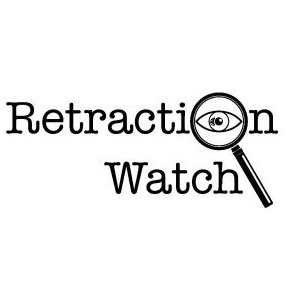Journal updates duplicate article it had said was “sufficiently” different from original – Retraction Watch

A journal for conference proceedings which published a duplicate article has updated the later version, after originally telling the researcher who noticed the duplication that the articles were different enough to warrant publishing both.
The article, titled “Production and storage of polarized H2, D2, and HD molecules,” was published twice in the journal Proceedings of Science, in 2018 and in 2019. The first version represented proceedings from a talk given at the 2017 XVII International Workshop on Polarized Sources, Targets & Polarimetry in Kaist, South Korea; the second was from the 23rd International Spin Physics Symposium in Ferrara, Italy, held in 2018.
The later version has minor differences from the first, including more technical details about the study’s methods.
PoS, which is run by the International School for Advanced Studies based in Trieste, Italy, functions as a repository for various conference proceedings. It is run by a small staff, and each submission is reviewed by an individual conference’s editorial board.
A researcher, who asked to remain anonymous, contacted PoS after coming across the two nearly identical versions of “Production and storage of polarized H2, D2, and HD molecules.” A journal representative first told the researcher that the journal would investigate the situation, then that “the contributions differ sufficiently in order to warrant both their publication,” according to an email seen by Retraction Watch.
“Shocked and flabbergasted” by this response, the researcher contacted Retraction Watch about the duplication and the journal’s decision to keep both articles published. The researcher told us:
Proceedings of Science denied the fact that a gross plagiarism was published in their journal and actually found it to be “sufficiently different”
In response to an email from Retraction Watch, Ralf Engels, the first author of the article, wrote that there was a simple explanation for the duplication. He said:
Both publications are proceedings of conference contributions. When I gave the corresponding talk on the first conference, I was asked to give the same talk at another conference too. For both conferences should write a proceeding and, thus, both proceedings are very similar.
Gabriella Furlan, a spokesperson for PoS, told us that the original complaint prompted the journal to review the journal’s policies, and eventually to begin working with the authors to update the second version of the article. This decision, Furlan said, was made shortly before we contacted them. She said:
When the researcher raised concerns about the duplication of content, we conducted a thorough investigation into the matter and contacted the conference editors asking to carefully compare the two articles and analyze their content and structure. As a result, we acknowledge the lack of citation and therefore we are in the process of asking the author to revise the second contribution to include a precise reference to the first. In addition to it, since transparency is another PoS core value, we are asking them to add a description of the modifications introduced in the second contribution.
The Committee on Publication Ethics does not have formal guidelines for published conference proceedings, including regarding duplications. In response to our inquiry, a spokesperson for COPE said there is currently a working group addressing this issue. A comment from a September 2022 COPE forum about ethical aspects of conference proceedings, which does not represent official COPE guidance, stated:
Sometimes the same or very similar papers can be published in proceedings from multiple conferences which is counter to usual expectations of publication ethics (duplicate-redundant publication) in journals more broadly.
In the absence of formal guidelines, PoS “has adopted an inclusive approach,” Furlan said.
Engels said he wasn’t aware the proceedings would be published in the same journal. At one point, he told us he had decided to request the retraction of the first version, but then said he would instead edit the second version of the article to cite the first and offer an explanation for the changes, as Furlan suggested.
PoS said that in response to the researcher’s complaint, they had also decided to review their policies on duplicate publications from conference proceedings. PoS said they did not respond to the researcher in more detail or mention their intentions to review their policies because they decided to conduct this review shortly after sending their brief reply to the researcher.
The pdf of the 2019 version of the article now cites the earlier version and includes a note which reads:
The corresponding talk was also given at the PSTP2017 conference in Kaist, South Korea. Nevertheless, this proceeding includes recent developments and more technical details in subsection 2.1.
PoS did not indicate that the first version of the article would refer to the second version in any way. Instead, they said, “it is essential that the second publication refer to the first one, as this ensures that the reader is informed about the main differences.” The first version of the article remains unchanged.
Neither chairperson of the two conferences’ editorial boards have responded to an email from Retraction Watch.The lack of formal guidance around conference proceedings has contributed to the proliferation of not only duplicated papers, but low-quality and nonsensical publications. Retraction Watch previously reported on hundreds of proceedings from conferences put on by the Institute of Electrical and Electronic Engineers which show signs of plagiarism, citation fraud, and other misconduct.
Like Retraction Watch? You can make a tax-deductible contribution to support our work, follow us on Twitter, like us on Facebook, add us to your RSS reader, or subscribe to our daily digest. If you find a retraction that’s not in our database, you can let us know here. For comments or feedback, email us at [email protected].







